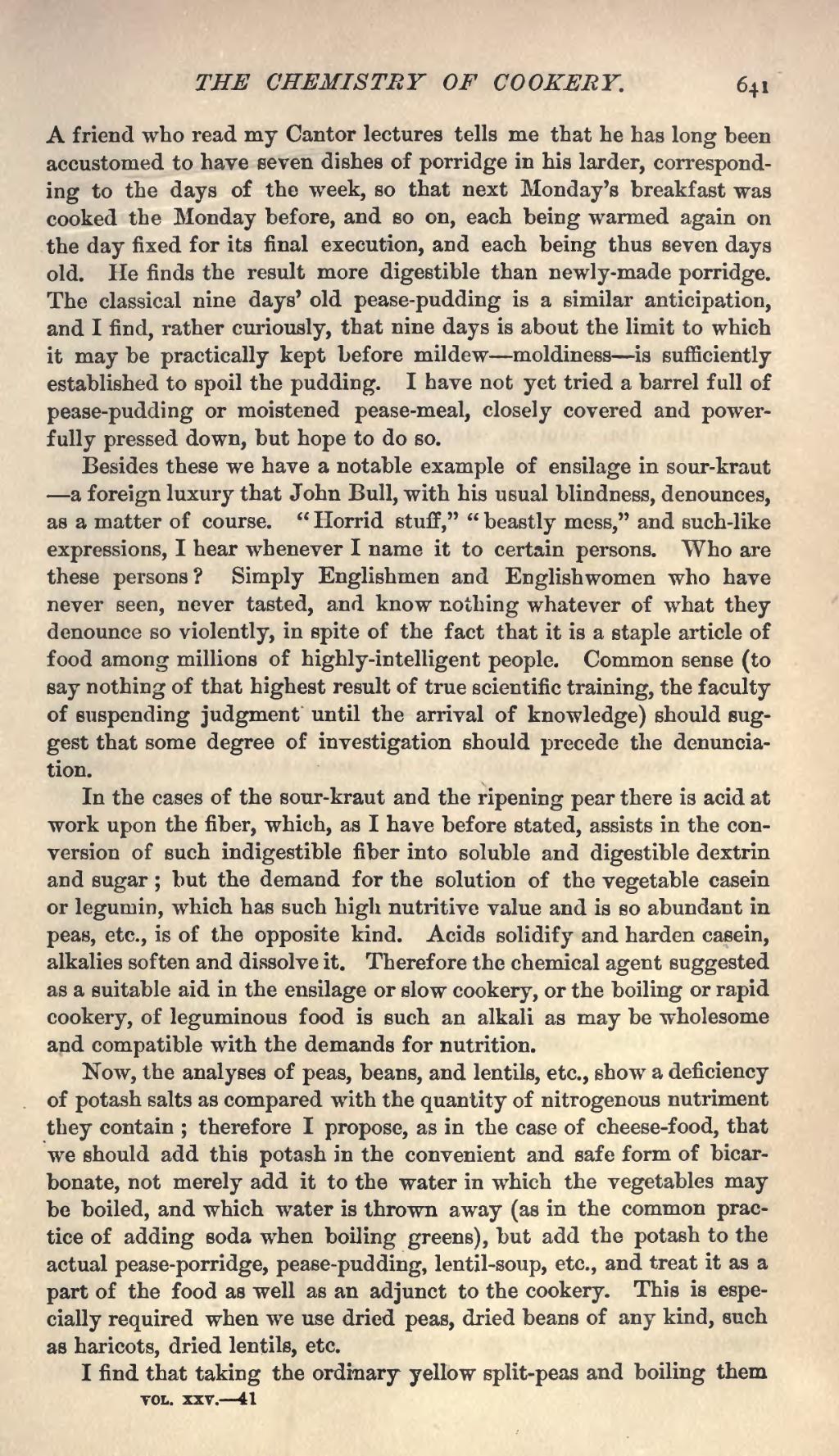A friend who read my Cantor lectures tells me that he has long been accustomed to have seven dishes of porridge in his larder, corresponding to the days of the week, so that next Monday's breakfast was cooked the Monday before, and so on, each being warmed again on the day fixed for its final execution, and each being thus seven days old. He finds the result more digestible than newly-made porridge. The classical nine days' old pease-pudding is a similar anticipation, and I find, rather curiously, that nine days is about the limit to which it may be practically kept before mildew—moldiness—is sufficiently established to spoil the pudding. I have not yet tried a barrel full of pease-pudding or moistened pease-meal, closely covered and powerfully pressed down, but hope to do so.
Besides these we have a notable example of ensilage in sour-kraut—a foreign luxury that John Bull, with his usual blindness, denounces, as a matter of course. "Horrid stuff," "beastly mess," and such-like expressions, I hear whenever I name it to certain persons. Who are these persons? Simply Englishmen and Englishwomen who have never seen, never tasted, and know nothing whatever of what they denounce so violently, in spite of the fact that it is a staple article of food among millions of highly-intelligent people. Common sense (to say nothing of that highest result of true scientific training, the faculty of suspending judgment until the arrival of knowledge) should suggest that some degree of investigation should precede the denunciation.
In the cases of the sour-kraut and the ripening pear there is acid at work upon the fiber, which, as I have before stated, assists in the conversion of such indigestible fiber into soluble and digestible dextrin and sugar; but the demand for the solution of the vegetable casein or legumin, which has such high nutritive value and is so abundant in peas, etc., is of the opposite kind. Acids solidify and harden casein, alkalies soften and dissolve it. Therefore the chemical agent suggested as a suitable aid in the ensilage or slow cookery, or the boiling or rapid cookery, of leguminous food is such an alkali as may be wholesome and compatible with the demands for nutrition.
Now, the analyses of peas, beans, and lentils, etc., show a deficiency of potash salts as compared with the quantity of nitrogenous nutriment they contain; therefore I propose, as in the case of cheese-food, that we should add this potash in the convenient and safe form of bicarbonate, not merely add it to the water in which the vegetables may be boiled, and which water is thrown away (as in the common practice of adding soda when boiling greens), but add the potash to the actual pease-porridge, pease-pudding, lentil-soup, etc., and treat it as a part of the food as well as an adjunct to the cookery. This is especially required when we use dried peas, dried beans of any kind, such as haricots, dried lentils, etc.
I find that taking the ordinary yellow split-peas and boiling them
